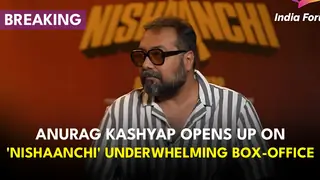
Google Chrome OS is an open source, lightweight operating system that will initially be targeted at netbooks. Later this year we will open-source its code, and netbooks running Google Chrome OS will be available for consumers in the second half of 2010. Because we're already talking to partners about the project, and we'll soon be working with the open source community, we wanted to share our vision now so everyone understands what we are trying to achieve.
Speed, simplicity and security are the key aspects of Google Chrome OS. We're designing the OS to be fast and lightweight, to start up and get you onto the web in a few seconds. The user interface is minimal to stay out of your way, and most of the user experience takes place on the web. And as we did for the Google Chrome browser, we are going back to the basics and completely redesigning the underlying security architecture of the OS so that users don't have to deal with viruses, malware and security updates. It should just work.
Google Chrome OS will run on both x86 as well as ARM chips and we are working with multiple OEMs to bring a number of netbooks to market next year. The software architecture is simple — Google Chrome running within a new windowing system on top of a Linux kernel. For application developers, the web is the platform. All web-based applications will automatically work and new applications can be written using your favorite web technologies. And of course, these apps will run not only on Google Chrome OS, but on any standards-based browser on Windows, Mac and Linux thereby giving developers the largest user base of any platform.
Google Chrome OS is a new project, separate from Android. Android was designed from the beginning to work across a variety of devices from phones to set-top boxes to netbooks. Google Chrome OS is being created for people who spend most of their time on the web, and is being designed to power computers ranging from small netbooks to full-size desktop systems. While there are areas where Google Chrome OS and Android overlap, we believe choice will drive innovation for the benefit of everyone, including Google.
We hear a lot from our users and their message is clear — computers need to get better. People want to get to their email instantly, without wasting time waiting for their computers to boot and browsers to start up. They want their computers to always run as fast as when they first bought them. They want their data to be accessible to them wherever they are and not have to worry about losing their computer or forgetting to back up files. Even more importantly, they don't want to spend hours configuring their computers to work with every new piece of hardware, or have to worry about constant software updates. And any time our users have a better computing experience, Google benefits as well by having happier users who are more likely to spend time on the Internet.
We have a lot of work to do, and we're definitely going to need a lot of help from the open source community to accomplish this vision. We're excited for what's to come and we hope you are too. Stay tuned for more updates in the fall and have a great summer.
Our real-world benchmarks show that the performance difference between Vista and Windows 7 is zilch. Our Office benchmarks and video-encoding tests completed in precisely the same time, regardless of which OS was installed on our test machine. However, there's no doubt that Windows 7 feels faster. Applications open in a snap, and there are fewer instances of the whirly waiting wheel that afflicts Vista.
Better still, it runs happily on netbooks. Although we've seen a few netbooks such as the HP Mini-Note 2133 pre-installed with Vista Basic, most resort to Windows XP. However, we installed Windows 7 on an MSI Wind, with an Intel Atom 1.6GHz processor and 1GB of RAM, and it performed spotlessly.
The Aero interface is smooth, menus responsive, even Media Center works with commendable polish. What's more, it goes from power off to booted and ready to use in around 50 seconds - only ten seconds slower than Windows 7 boots on a Dell M1330 laptop, with a Core 2 Duo T9500 running at 2.6GHz and 3GB of RAM.
SCOTT GURVEY, NIGHTLY BUSINESS REPORT CORRESPONDENT: The way Google has been attacking Microsoft, you'd almost think it was personal. Maybe it is. Google's announcement that it will deliver an operating system to compete with Microsoft's Windows comes just weeks before Microsoft sends a final version of Windows 7 to computer makers. Seven is the incarnation of its bread-and-butter product. But while Google's announcement certainly stirs the competitive pot, its Chrome OS is targeted at Netbooks, the small lightweight computers which exploded on the market last year. Scott Kessler of Standard & Poor's says Google is not meeting Microsoft head on.
SCOTT KESSLER, TECHNOLOGY ANALYST, STANDARD & POOR'S: Don't get me wrong, that's a very kind of exciting and compelling area with a lot of growth potential, but it really is not a major part of Microsoft's revenue and profit base at this point.
GURVEY: The Google operating system is just one of a number of areas where the monster of Mountain View is attacking the dominator of Redmond. Google is also competing with Microsoft Office, its application suite and with its Internet browser, which is bundled with Windows. Microsoft has struck back with several search advertising products, the latest called Bing, all to compete with the phenomenally successful Google search engine. The companies also battle in areas where neither dominates. Both have mobile telephone operating systems. Microsoft is believed planning a version of Windows 7 designed for Netbooks and both compete with others to provide services through networking, which is called cloud computing. Google won't deliver its Chrome OS for a year, but we do know it will be based on Linux. There have been Linux-based desktop systems on the market for years and pcmagazine.com's Lance Ulanoff says there are good reasons why they haven't dented Windows' market share.
LANCE ULANOFF, EDITOR-IN-CHIEF, PCMAGAZINE.COM: One of the reasons that Windows is sometimes seen as so big and difficult to use is because Microsoft is forced to support 90 percent of the computers in the world, 90 percent of the configurations where businesses rely on things that they have and are still working. If they get the new version of Windows, everything will still work. I don't know how Google can promise that kind of reliability.
GURVEY: Google may be sidestepping that issue buy targeting the Netbook. Scott Kessler says buyers of Netbooks may not insist on the same user experience as desktop users.
KESSLER: This is going to be largely an additional, low cost PC that people are going to use maybe in conjunction with a desktop or another laptop or what have you. So we think people might be more inclined to take an experiment and take a chance with Google especially if the price and the experience are right.
GURVEY: And Susie, Microsoft and Google are fighting it out in the halls of government as well. Each one is trying to get the investigators to take a look into the competitive practices of the other guy.
GHARIB: Scott, we just got a news flash while you were delivering your story that Google says its Chrome will be available to users at no cost. So what do you make of that?
GURVEY: Well, that was not unexpected. It's certainly one way to build market share. It's going to be very interesting to figure out in the long run how Google makes any money from this. Google really hasn't made any money from any of its applications. It makes of course a phenomenal amount of money from its web search and the advertising associated with that. But nothing else that it's done has been profitable. How will it make money this way? Will it put advertising on the desktop of Chrome users? And what will the antitrust people think about this? It raises questions.
GHARIB: But we know that Google is very popular with most users. They love the search engine. They love the e-mail services. It seems likes it's going to be an easy sell to get consumers to use the new Chrome.
GURVEY: Maybe consumers, maybe the people who like to try out new things. But, you know, you have to look in the long run at this thing. The Linux-based systems have been out for a long time. We'll have to see if they're going to have the device drivers, the support for applications and when businesses look at these things, they're going to look at that and they're going to look as some of our commentators said in the story, they're going to look to see if they can deal with the centralized control and the security, the kinds of things that have been built into Windows over the few years.
GHARIB: We have a few seconds left, so are you saying that Microsoft can sit back and doesn't need to worry about Google?
GURVEY: Microsoft can never sit back and not worry. It's the king of the hill and everybody's going to be nipping at its toes. Where they do have to worry, I think -- I think the Netbook is a short timer. I think what happens is we get bigger and better mobile phone, smart phone devices and Google is a big player there. So is Microsoft. So is Palm. So is Apple. There are a lot of players there. That may be the next wave.
GHARIB: We'll see and I'm sure you'll keep us posted on all that. Thanks, Scott. New York bureau chief Scott Gurvey.




















